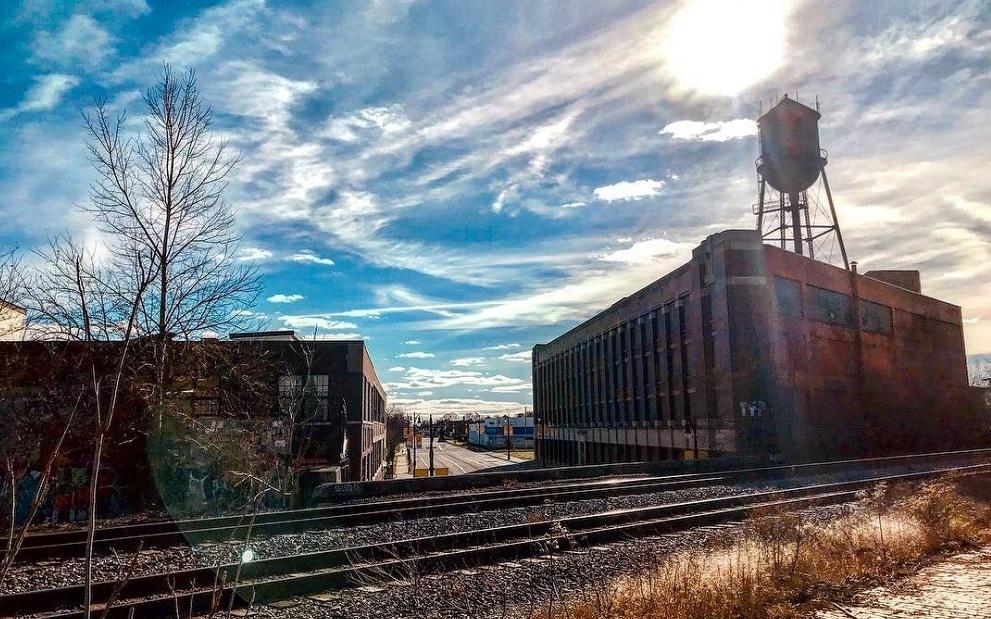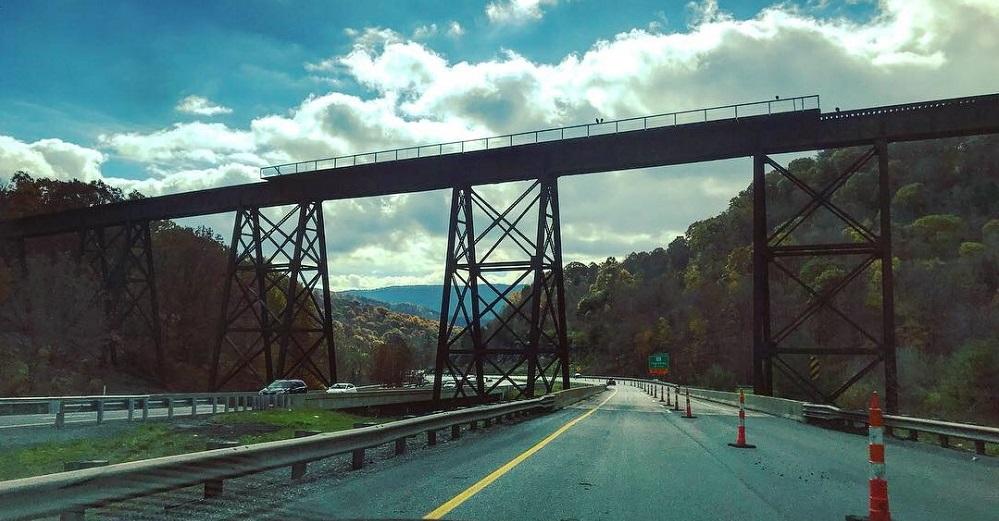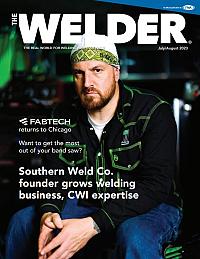Owner, Brown Dog Welding
- FMA
- The Fabricator
- FABTECH
- Canadian Metalworking
Categories
- Additive Manufacturing
- Aluminum Welding
- Arc Welding
- Assembly and Joining
- Automation and Robotics
- Bending and Forming
- Consumables
- Cutting and Weld Prep
- Electric Vehicles
- En Español
- Finishing
- Hydroforming
- Laser Cutting
- Laser Welding
- Machining
- Manufacturing Software
- Materials Handling
- Metals/Materials
- Oxyfuel Cutting
- Plasma Cutting
- Power Tools
- Punching and Other Holemaking
- Roll Forming
- Safety
- Sawing
- Shearing
- Shop Management
- Testing and Measuring
- Tube and Pipe Fabrication
- Tube and Pipe Production
- Waterjet Cutting
Industry Directory
Webcasts
Podcasts
FAB 40
Advertise
Subscribe
Account Login
Search
Playing With Fire: The need for government-imposed regulations
From railroads to fabrication shops, regulations keep employees safe and industry accountable
- By Josh Welton
- October 21, 2023
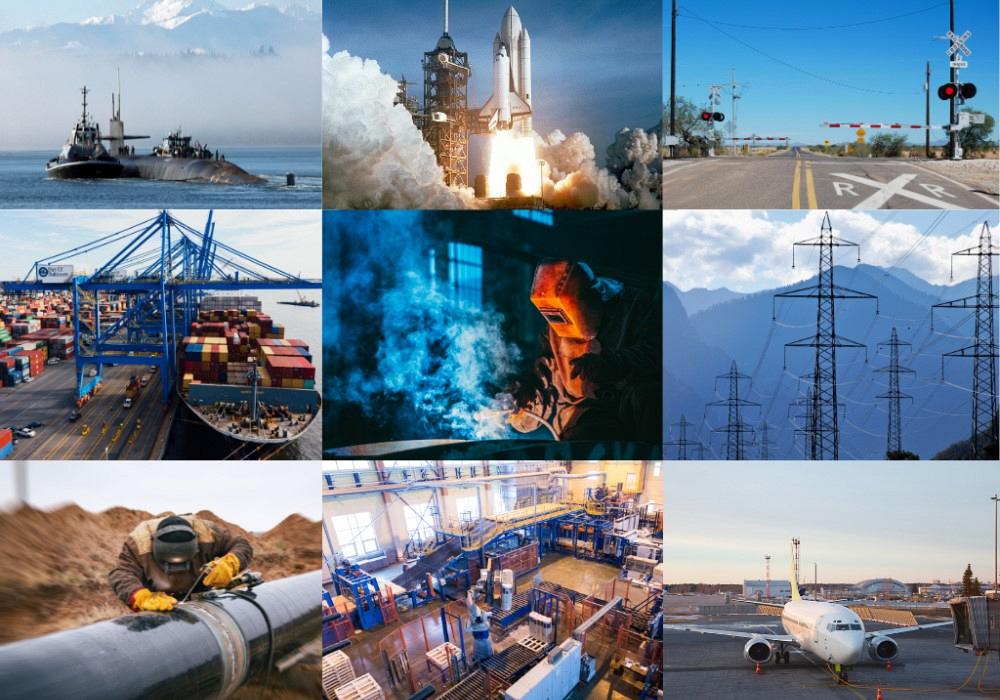
Josh Welton argues that even though nobody likes government-imposed regulations, they are necessary to keep employees safe and businesses and industries accountable, whether it’s a welding shop, oil rig, space shuttle, or experimental submersible.
Columnist Molly Ivins once wrote the following: “It's all very well to run around saying regulation is bad, get the government off our backs, etc. Of course, our lives are regulated. When you come to a stop sign, you stop; if you want to go fishing, you get a license; if you want to shoot ducks, you can shoot only three ducks. The alternative is dead bodies at the intersection, no fish, and no ducks. OK?”
Listen, nobody likes more government-imposed regulation, especially when it comes to health and safety. The regulations are seen as something to be worked around, a money grab by politicians, and an impediment to progress. Ironically, our last president called them “job killers.”
More rules and regulations make the worker’s job more difficult, management’s duties more complicated, and they cost the owners a lot more money. But some folks understand the need for regulation, for there to be rules and measures that don’t allow companies to disregard the safety of its employees or the community for the sake of more profit.
“Nonenforcement of government regulation results in reckless behaviors by those that know the system is flawed,” author Steven Magee once said.
Outsourcing Production to Avoid Safety Regulations
It can be frustrating to be part of a global economy when our rules and regulations value the environment and human cost much more than in other countries, where big manufacturers will outsource production to places where entities like OSHA don’t exist, the overwatch has no teeth, or there aren’t many regulations to begin with.
When I worked for Chrysler, the automaker closed down a casting plant in Kokomo, Ind., and moved production to a less-developed country. Our plant was affected because Kokomo supplied us with our engine blocks. Management held a big town hall meeting where they reviewed the year, the Kokomo closure, and where we were as a factory and company. An added spice to the event was that it came in a union contract year. Earlier, I’d “indiscreetly” found a card meant for management that explained the cost breakdown between casting blocks in Kokomo versus South America. During the Q&A portion, the closing of another one of Chrysler’s American factories became a hot topic. The exec running the meeting became flustered, finally saying, “Bottom line is YOU guys make too much money; it's too costly to keep production here.” That got people going!
I was waaaay in the back, and I raised my hand and said, “I’ve seen the math. Kokomo employees could literally work for $0 an hour and STILL be more expensive than where you’re outsourcing to because there, they don’t care about employees’ well-being, they don’t care about safety, and they couldn’t give a shit about the environment. That’s why you’re moving, not because of how much we get paid!” I’d barely gotten the last word out of my mouth when he mumbled, “This meeting is over,” and exited stage right.
When companies say they’re outsourcing work overseas for cheaper labor costs, they mean the whole package: low wages, no hour limits, no breaks, no safety regs (or if there are, they aren’t enforced), no retirement, no worrying about chemicals seeping into the ground or leaking into the water. If someone gets hurt on the job, they either work through it or get fired. If a worker dies, they might give the family some money, or they might just ignore it and find another warm body to take over. Labor is purely an asset that the company owns, like a machine.
“Deregulation is a transfer of power from the trodden to the treading. It is unsurprising that all conservative parties claim to hate big government,” says writer George Monbiot.
Clearly, there is a partisan political element here, but that’s not my focus. No matter who is in charge or in power, industries lobby for less regulation and fight any thoughts of more regulation. But time and time again we see black and white examples of what happens when an industry is either mostly self-regulated (like railroads) or makes so much money ignoring the regs that it can pay any and all fines and/or lawsuits filed against them (like Big Pharma).
Johnson & Johnson has spent billions to settle with the government and individuals over problems that have occurred when it hasn’t abided by regulations. The company looks at it as a math problem. “OK, we took a medication that was approved for a certain malady, but in order to make the big bucks we need it to reach this other, much larger group. Let's market to them but skip the red tape and testing and just go right to market. We’ll factor in the legal costs and fines that are surely coming; this is going to make us $10 billion, and the most we’ll be liable for is $1 billion.” That’s not conjecture; that’s literally been happening as long as the company has existed. The latest example is this year’s $9 billion settlement stemming from lawsuits claiming its baby powder causes cancer.
Safety Concerns Around Railroad Infrastructure
Now for the railroads. According to an article published by The Kansas City Star, Jason Hayden, the Missouri legislative director for SMART Transportation Division, the nation’s largest railroad union, said there’s an old adage among rail workers about their employers’ attitudes: “Safety is fine until it costs a dime.”
The article detailed how 39-year-old CSX conductor Paul Payne died in fall 2020 in an Ohio rail yard after getting fatally impaled by a tree limb hanging into the railroad right of way. A hand-held lantern was his source of light as the train moved down the yard one dark morning.
“Like he had done countless times before, conductor Paul Payne hung off the side of a railcar as his engineer backed up the train into a northwest Ohio yard in the fall of 2020,” the article said.
The railroad companies are required to maintain a clear right of way along the tracks. To make this situation worse, CSX had been warned and told multiple times that this area had heavy vegetation growth that needed to be cleared. The company ignored it until Payne died, then cleaned it up the next day.
Despite these warnings over the previous months, CSX said the following to The Kansas City Star: “We proactively clear brush and trees from our property; unfortunately, weather and other natural disasters can cause trees to fall and foul our tracks unexpectedly.”
Later in the article, the author wrote, “Enforcing stricter safety on railroads has never been easy. Railroads exist in a unique regulatory environment which means many accidents, crashes, and injuries are never independently investigated. In some cases, the railroads will even investigate themselves.”
The National Transportation Safety Board investigates a very, very small portion of the many train accidents that occur every year. But it literally has zero regulatory power. Typically, it finds a cause and suggests how to fix it, and the railroads say, “Nah, that was human error.” Then the company punishes the employee(s) injured or conducting the train.
The recent derailment/disaster of a Norfolk Southern train in Ohio put even more of a spotlight on safety measures versus profit.
“The railroads want to decrease costs, and as they are decreasing costs, risks are generally increasing," Sarah Feinberg, former administrator of the Federal Railroad Administration (FRA), told CBS News.
"When I was FRA administrator, I was not happy with the lengths of the trains, and they were 80 or 90 cars long," Feinberg said of the “very long” train involved in the Ohio derailment. "This train was 50% longer."
Feinberg said longer trains are more efficient for the railroad companies and its executives, but more challenging for the crews tasked with making repairs mid-route, a job that requires walking the length of the train to identify problems.
According to CBS News, employees described a system stretched beyond its limits, leading to things like worker exhaustion, shortened car inspections, and no regulations on train sizes.
The train that wrecked was loaded and lined up for efficiency, ignoring safe practice. The 151-car lineup was way too heavy in the back. Luckily, the three crew members could at least work together to mitigate damages. Railways have been lobbying to reduce that to one crew member: the conductor. The reform group Railroad Workers United said “risky practices” like cost-cutting reduced maintenance and inspections, and job cuts led to not detecting the “19th-century-style” mechanical failure of the axle that led to the derailment.
“There is no way in the 21st century, save from a combination of incompetence and disregard for public safety, that such a defect should still be threatening our communities,” the Railroad Workers United said in a People’s World article.
I could literally write a book on the sins of the railroad industry alone. Railroad companies push all blame on the workers as they terminate anyone who refuses dangerous work. They spend money to keep regulations at bay. They cut needed resources and employees to find a bigger pot of gold, consequences be damned. It is honestly mind-boggling.
When Industry and Technology Move Quicker than Safety Measures
Ahead of a presidential oil spill commission regarding the 2010 Deepwater Horizon oil spill, co-chairman William Reilly said, “The technology to clean up after an oil spill is primitive. It's wholly disproportionate to the tremendous technological advances that have allowed deep-water drilling to go forward. It just hasn't kept pace."
It’s pretty easy to become overconfident in something when it's “worked so far.” From developing a new technology that has yet to experience catastrophic failure (or grow out of our control) to cutting corners on a venture and believing an individual’s genius will make up for a lack of testing and validation, we spend so much energy on the dream of what we could accomplish. Energy, time, and money being what it is, we set any worst-case scenarios aside to focus on progress and fulfilling the vision. The safety mechanisms set in place are afterthoughts.
“The common thread—which the new presidential oil spill commission will be looking for—often is technological arrogance and hubris,” Associated Press journalist Seth Borenstein wrote in a 2010 piece both reflective and prescient of the Gulf oil spill and other preventable disasters. The Deepwater Horizon tragedy/oil rig explosion killed 11 people, destroyed a $600,000 rig, and dumped 210 million gallons of oil into the Gulf of Mexico.
“It's the belief by those in charge that they're the experts, that they know what they're doing is safe. Add to that the human weaknesses of avoidance, greed, and sloppiness,” Borenstein said.
In Borenstein’s article, Reilly said government regulation hadn't kept pace, either. And something else hadn't kept up: how the oil industry assessed and worked with the risk of catastrophic damage from spills.
How thoroughly have the multiple backup systems been designed, maintained, and tested?
"People don't spend enough time thinking about what could go wrong," Professor Douglas Osheroff said in the article, which was picked up by multiple news outlets.
“And because people are so sure of themselves when they see something go wrong that they can't fix, they accept it.”
This was exactly the scenario that killed seven astronauts as the space shuttle Columbia came back from space. Early on in design, NASA deemed that there shall be no external debris flying loose during launch. But it happened time and time again; large pieces of insulating foam broke off the external fuel tank during launch. Damage had occurred before, but it hadn’t caused a complete disaster—yet. Up until the launch of Columbia, “foam strikes” had occurred on multiple launches. When NASA couldn’t find a way to stop the strikes, they deemed them “acceptable risks.”
“The Columbia accident investigation board called it ‘normalization of deviance.’ Pieces of foam insulation had broken off the shuttle's external fuel tank six previous times before that problem proved fatal with Columbia, when a piece of foam knocked a deadly hole in a shuttle wing,” Borenstein wrote.
The kicker is that they knew it happened before Columbia attempted reentry but never told the crew because it wasn’t fixable. In future launches, they’d either have a rescue ship ready or put the crew in a space station until they could be safely retrieved.
If the top engineers and problem-solvers in the world can fall prey to this and fatally decide to roll the dice, wouldn’t the same mindset penetrate the souls of ambitious billionaires?
Lack of Safety Regulations with OceanGate
Just this summer, everyone on Earth watched as a rich, driven engineer took advantage of the unregulated wild west of deep-sea submersibles to thumb his nose at proven technology and cut corners so he and a few “lucky,” super-wealthy clients could explore the wreck of the Titanic.
“As the world now knows, Stockton Rush touted himself as a maverick, a disrupter, a breaker of rules. So far out on the visionary curve that, for him, safety regulations were mere suggestions,” according to a Susan Casey piece in Vanity Fair.
Casey wrote, “‘If you’re not breaking things, you’re not innovating,’ he declared at the 2022 GeekWire Summit. ‘If you’re operating within a known environment, as most submersible manufacturers do, they don’t break things. To me, the more stuff you’ve broken, the more innovative you’ve been.’”
What red-blooded human doesn’t love this attitude? Rules are meant to be broken, and really they aren’t even rules—just knowledge gained from those who tackled subs before Rush. There’s a brave new world to explore, and by God, that’s what we’ll do! When you believe you’re the smartest man in any room, there is nothing that can stop you.
Aside from maybe the immutable laws of physics. That’s a governing body you ignore at your own peril.
Rush and OceanGate had been the talk of this tight-knit community for years. Everyone else had been (and still is) playing by the “rules.” They’re using proven shapes. They’re testing new features until it's absolutely clear it will work, or the project is discarded. The subs are built from metals like steel and titanium. They build in fail-safes, redundancies, rescue crafts, rescue procedures, and the like. They work through a long and tedious process, from concept to design to build to test, before any inkling of making a legit dive. And they all knew that OceanGate was a disaster waiting to happen—not if, but when. And whenever that disaster would inevitably strike, the deep-sea exploration community feared this niche industry would be put under the microscope and then possibly be regulated out of existence.
Then Rush came along and said, “Nah, I’m smarter than y’all and if you don’t like me, you're just a low-level hater.” He built a scale test hull out of carbon fiber, watched it implode way before it reached the pressure numbers necessary for it to work, and stuck with the material and design anyway. He hired David Lochridge, an extremely experienced and highly regarded marine expert and sub dude, to verify the safety of the sub (dubbed the Titan) as it was developed.
When Lochridge, who had turned his life upside down to work with Rush, refused to sign off on the unsafe vessel, he was fired. Listen, I don’t know much, but I know that using titanium ends on a carbon fiber hull that’ll experience insane pressure is probably not the best idea. Lochridge then went public with dozens of unsafe, poorly made, half-assed features—each one separately making it unseaworthy. Even a perfect carbon fiber hull had never experienced the amount of pressure that the Titan was expected to withstand, and OceanGate’s carbon fiber sub was already falling apart.
Rush fired Lochridge, sued him for requesting more data, threatened his visa status, and sued Lochridge’s wife for breach of contract when she wasn’t even an employee—because when you’re the genius, everyone else must be wrong.
OK, I’ve got to stop there. We all know what happened next. Five people died, including Rush. The stories leading up to Titan’s implosion are still coming to the surface, and they are damning, especially since most are documented as happening prior to the tragedy.
There was no governing body with any power to stop him. There were no qualifications Rush, OceanGate, or its employees needed to have and no tests that they nor the Titan needed to pass. I think most believe that self-preservation is the only rule needed, but when you consider yourself beyond reproach, failure isn’t really a remote possibility.
Humanity is always reactive to safety and environmental damage. The innovation of a thing is always the most important, and when something goes wrong, we don’t have a plan to mitigate it. We’ll figure it out the next time. Invention is first; well-being is somewhere down the line, if at all.
I haven’t really mentioned welding yet, but consider the fumes generated by rods and materials. Welding on the latest and greatest is always the first priority, and it’s only after welders complained of headaches and worse reactions that air quality was measured and safe work practices were put in place. My current job refused to put in vents until OSHA measured the air and deemed them necessary. The company fought it because of money.
Right now, I’m seeing hungry scientists, tech bros, and capitalists push the envelope for artificial intelligence, with science fiction acting as our only warning system that, hey, maybe this needs some more fail-safes. There is a lot of money to be made in bleeding-edge tech, but planning for safety takes some of that money away.
Again, government overreach is real, and it can be a pain in the ass and occasionally ridiculous for the individual worker to follow safe practices. But consider the alternative: We could still be mining with no PPE and sending 12-year-olds to work in filthy factories. Without laws and regulations, money and ego would take priority over human well-being and safety. In some cases, it still does.
subscribe now
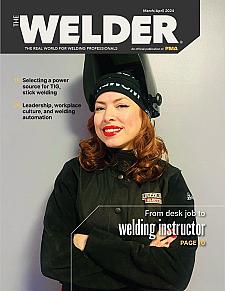
The Welder, formerly known as Practical Welding Today, is a showcase of the real people who make the products we use and work with every day. This magazine has served the welding community in North America well for more than 20 years.
start your free subscriptionAbout the Author

About the Publication
- Stay connected from anywhere

Easily access valuable industry resources now with full access to the digital edition of The Fabricator.

Easily access valuable industry resources now with full access to the digital edition of The Welder.

Easily access valuable industry resources now with full access to the digital edition of The Tube and Pipe Journal.
- Podcasting
- Podcast:
- The Fabricator Podcast
- Published:
- 04/16/2024
- Running Time:
- 63:29
In this episode of The Fabricator Podcast, Caleb Chamberlain, co-founder and CEO of OSH Cut, discusses his company’s...
- Trending Articles
Sheffield Forgemasters makes global leap in welding technology
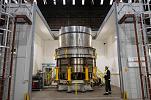
ESAB unveils Texas facility renovation

Engine-driven welding machines include integrated air compressors

The impact of sine and square waves in aluminum AC welding, Part I
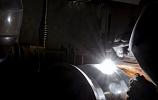
How welders can stay safe during grinding
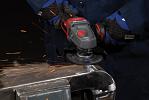
- Industry Events
16th Annual Safety Conference
- April 30 - May 1, 2024
- Elgin,
Pipe and Tube Conference
- May 21 - 22, 2024
- Omaha, NE
World-Class Roll Forming Workshop
- June 5 - 6, 2024
- Louisville, KY
Advanced Laser Application Workshop
- June 25 - 27, 2024
- Novi, MI
























